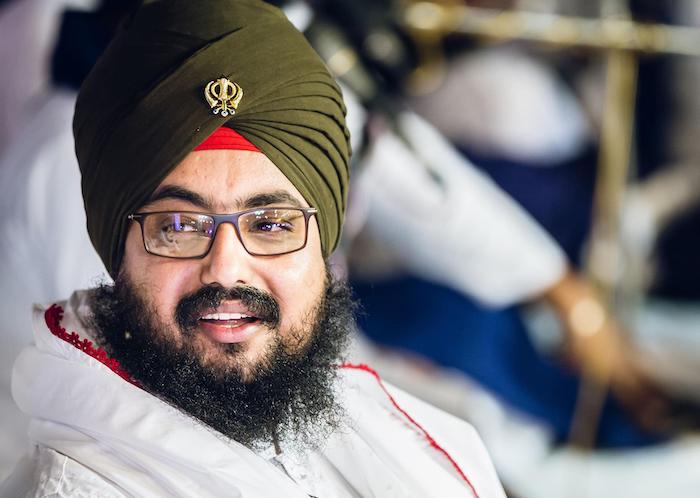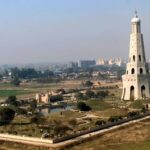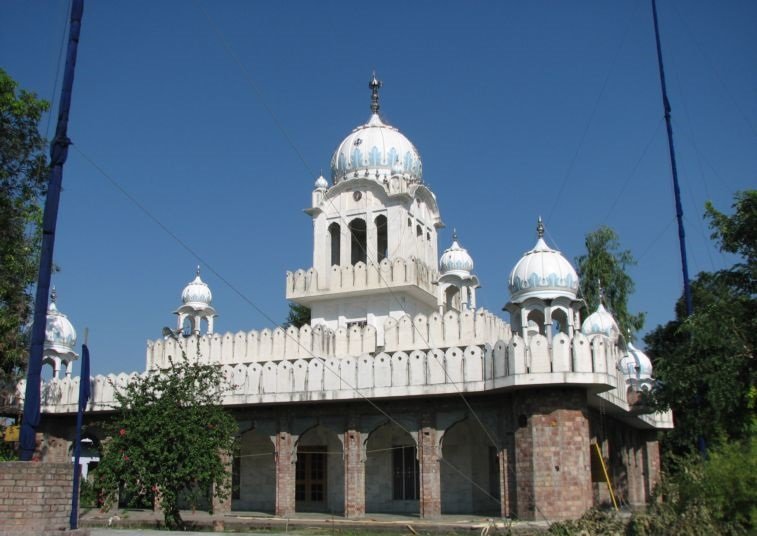Bhai Ranjit Singh Dhadrianwale : Born 7 July 1983
Occupations : Religious preacherpublic speaker
Language : Punjabi
Albums: Dharna, Chinte Vich Nihan De Sohne Lal Mata Ji Tere, Nirol Dharna-284, Bhagat Pyare Rabb Noo
Ranjit Singh Dhadrian Wale
Ranjit Singh Dhadrian Wale stands out as a key figure in the transformation of the Sikh Panth. Renowned as a storyteller, Gurmat evangelist (Sikh preacher), and religious musical artist, he embarked on his journey of preaching Sikhism at the age of 16. In a remarkable effort to contribute to Sikhism, he constructed the Gurdwara Parmeshar Dwar Sahib in the village of Sheikhupura in the Patiala District of Punjab.
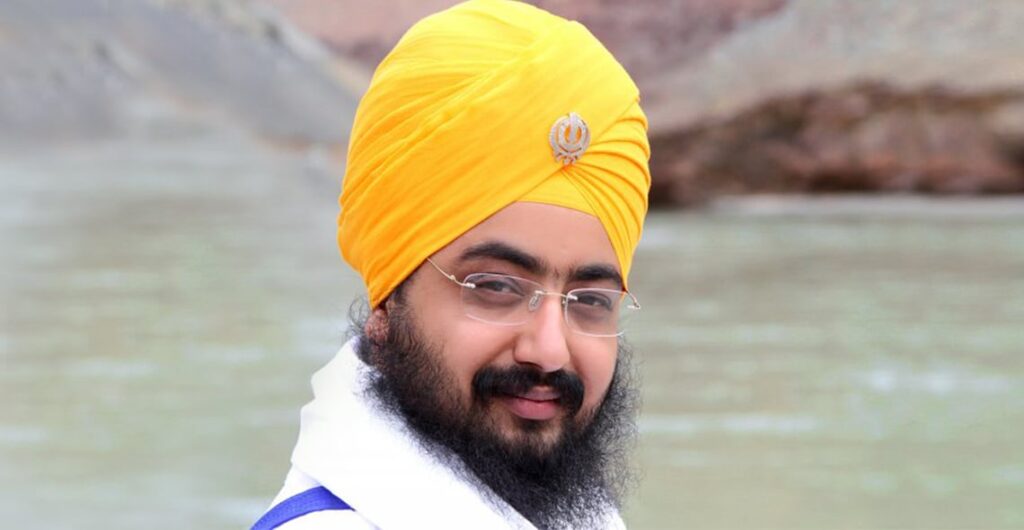
This splendid structure graces the main Patiala-Sangrur highway, situated approximately 10 km from the Patiala Bus Stand. Notably, the Gurdwara goes beyond being a place of worship. It serves as a hub for community welfare, offering free food and basic healthcare services around the clock. Ranjit Singh Dhadrian Wale’s dedication to both spiritual teachings and practical service has made a significant impact on the Sikh community.
Gurdwara Parmeshar Dwar Sahib
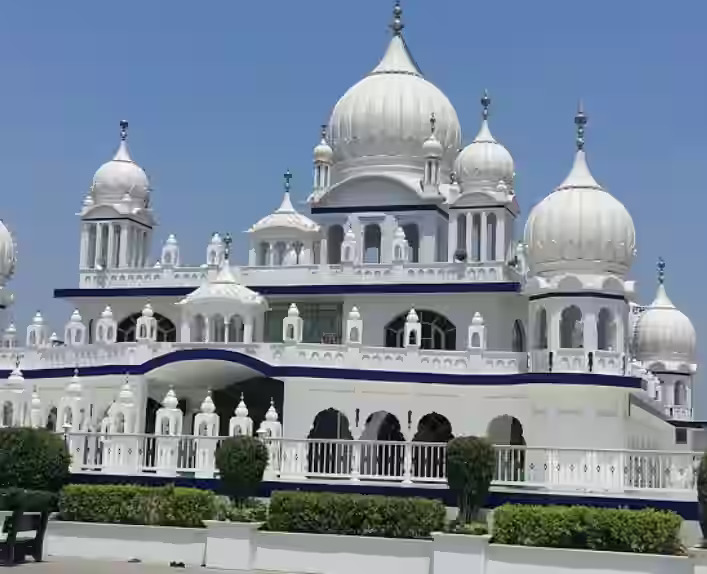
The construction of Gurdwara Parmeshar Dwar Sahib was completed in 2010, and it is located on the Sangrur-Patiala Road in Sheikhupur, Punjab. This gurdwara complex encompasses Kalgidhar Sangat Niwas and a spacious diwan hall with a seating capacity of over 50,000. Every first Saturday of the month, a monthly Guru Manyo Granth Chetna Samagam (holy congregation) is organized, attracting a large gathering of Sikh devotees (Sangat). On the same day, Amrit Sanchar, a Sikh initiation ceremony, is also conducted. These events are broadcasted live on TV, the website, YouTube, and through a dedicated app named “Dhadrianwale”.
His Philosphy
Dhadrianwale advocates for the practical application of Sikh Gurus’ teachings in everyday life, emphasizing understanding Gurbani beyond mere rituals. He promotes honesty, hard work, and a passionate approach to fulfilling responsibilities, encouraging people to lead practical and truthful lives. Rejecting the belief in heaven or hell, he asserts that karmas find resolution at mental, emotional, and spiritual levels in this life. Dhadrianwale opposes ritualistic animal slaughter and believes in the universal embodiment of God, emphasizing the need to respect and protect nature.
His message addresses the alarming issues of drug, alcohol, and tobacco abuse, particularly affecting the Sikh community in Punjab. Delivered in a simple and relatable manner, his teachings aim to prevent individuals from succumbing to these harmful influences. Dhadrianwale’s kirtan follows the sant tradition, making the message accessible to the rural population of Punjab. His chief aspiration is for Sikhs to embrace the Khalsa way of life and become exemplars of Guru Gobind Singh Sahib Ji Maharaaj’s Khalsa Saint Soldiers.
Through Gurmat Parchaars and massive Diwans, Dhadrianwale seeks to guide Sikhs back to the path outlined in the Sri Guru Granth Sahib Ji Maharaaj. The ‘Guru Manio Granth Chetna Samagam’ witnesses thousands taking Amrit monthly, symbolizing a growing movement of Gurmat Parchaar and Amrit Sanchaar.
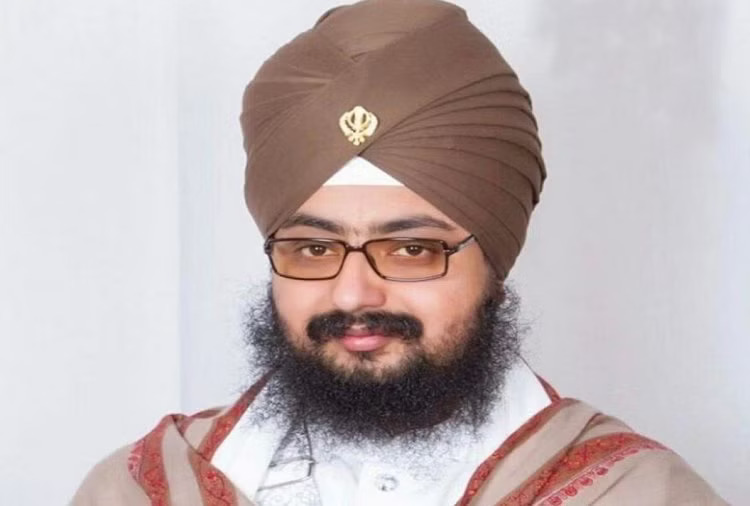
Dhadrianwale’s influence extends globally, attracting a substantial following through religious events, TV broadcasts, and outdoor gatherings. His simple and everyday Punjabi style resonates with the masses, impacting both the young and old in Sikh society. His efforts have led to positive transformations, with individuals giving up destructive habits and embracing healthier and purposeful lives.
In the face of challenges, Dhadrianwale actively participates in protests to protect Sikh values. His commitment to Guru Nanak’s fundamental message and the spiritual teachings of the Guru Granth Sahib is evident in his tireless dedication to spreading these values in Punjab and beyond.
His Controversies
In recent years, Dhadrianwale underwent a shift in his understanding of Guru Granth Sahib’s ideas, leading to controversy among Sikh scholars and groups. In 2016, a conflict arose with Baba Harnam Singh of Damdami Taksal over ideological differences. On the evening of May 17, 2016, armed men attacked Dhadrianwale while he was traveling to a congregation in Ludhiana. His aide, Bhai Bhupinder Singh Khasi Kalan, was tragically shot dead, but Dhadrianwale survived. Life threats persisted, prompting the intervention of the Punjab Chief Minister.
In February 2020, Sikh groups disrupted Dhadrianwale’s sermons, accusing him of distorting Sikh history and opposing core principles. Protestors warned him against addressing congregations in Punjab in March 2020, prompting Dhadrianwale to avoid gatherings to ensure public safety.
In August 2020, Akal Takht directed the Sikh community to boycott Dhadrianwale until he sought clemency for alleged objectionable remarks against Sikh principles and distortion of Sikh history. Despite declining an invitation to meet a committee in December 2019, Dhadrianwale remains a significant figure, with controversies including accusations of singing “Kachee Baanee” and allegations of financial motives.
Earlier, Dhadrianwale held the ‘Sant’ title from Rara Sahib Lineage and preached with an orthodox ideology related to Hindu mythology. Over time, he shifted his focus to logical philosophy, causing discomfort within orthodox sects. The 2016 attack on him was linked to ideological differences with Harnam Singh Dhumma, who was accused of orchestrating the assault.
Additionally, Dhadrianwale faced allegations of improper behavior, including accepting money and receiving devotion akin to a holy figure. A video depicted him sitting on a high seat with a large painting of himself, receiving offerings and bowing from devotees. Despite criticism, he apologized, attributing his behavior to his youth.
Notably, during a peaceful protest in 2015 demanding justice for the desecration of Sri Guru Granth Sahib Ji, Dhadrianwale and other preachers were arrested, beaten, and tortured by the police. Released due to insufficient evidence, they later faced life threats from Damdami Taksal. Ongoing controversies reflect the complex dynamics surrounding Dhadrianwale’s journey and impact in the Sikh community.
Attempted Assassination on Dhadrian Wale
On May 17, 2016, an unknown assailant armed with guns launched a brutal attack on Bhai Ranjit Singh Ji Khalsa while he was en route to a congregation in Ludhiana. This premeditated attempt on his life occurred under the guise of volunteers serving “Chabeel” (a sweetened cold drink). Bhai Bhupinder Singh Khalsa, a fellow preacher, was seated in the front, the usual place where Bhai Ranjit Singh himself would sit. The shooter, mistaking Bhai Bhupinder Singh for Bhai Ranjit Singh, fired a close shot, resulting in Bhai Bhupinder Singh’s tragic demise.
Simultaneously, a group of 10-12 armed men wielding guns, axes, swords, and bars attacked all the cars in Bhai Sahib’s convoy. Despite the car tires being deflated by gunshots, Bhai Sahib’s driver managed to steer the Toyota Land Cruiser away from the scene. The assailants pursued, shooting at Bhai Sahib’s car. Evading them, the convoy took refuge in an under-construction school building after abandoning the car. By then, Bhai Bhupinder Singh had lost his life. The police were called to the scene.
Unfortunately, the police investigation faced challenges and failed to build a strong case against the culprits, primarily due to political pressure.
After nearly 19 months since the attack, a police team from Ludhiana initiated search operations in Navi Mumbai. It was reported that immediately after the attack, police units from Punjab had been attempting to apprehend the alleged conspirators in Mumbai. Initial media reports had suggested that the conspiracy for the attack was planned in Mumbai.
During the assault, Bhai Bhupinder Singh, seated in the front of the Toyota Land Cruiser Prada, sustained a bullet injury and succumbed to the injuries before medical aid could reach him. Bhai Ranjit Singh Dhadrianwale, seated in the rear of the car, escaped with minor injuries. The Ludhiana police had already seized the car used by the assailants, a Tata Safari (PB 23 J 0015), though the followers of Baba Dhadrianwale had mentioned in their petition to the Punjab and Haryana High Court that as many as five cars were involved in the attack.
As per reports, Dhadrianwale was attacked by unidentified persons near Barewal village in 2016. In the convoy, Bhupinder Singh Khasi Kalan, traveling with him in a Land Cruiser, was shot dead.
His Accomplishments
Baba Ranjit Singh has made significant contributions to the Sikh Panth, achieving much at a young age of 27 (as of July 7, 2010). His primary mission was to conduct Amrit-Sanchar, and he successfully accomplished this by participating in numerous kirtan events across India and abroad. According to records, his jatha has initiated more than 650,000 Sikhs in Amrit-Sanchars, with the largest number of Sikhs baptized in a single event being 10,500+. His preaching focused on how religious principles (Sikh Rehit) could enhance a Sikh’s social, moral, and spiritual life, often using examples from Sikh history.
Baba Ranjit Singh emphasized the importance of wholeheartedly respecting Guru Granth Sahib. During his kirtan events, the Sikh audience remained attentive without leaving or causing disturbances until Guru Granth Sahib was respectfully moved after the completion of the event. A well-designed Gurdwara building named ‘Parmeshar Dwar’ stands on the Patiala-Sangrur highway, offering a 24-hour free kitchen (langar) for anyone visiting the Gurudwara. Over 100,000 people gather for the monthly samagam held on the first Saturday of every month, which includes an Amrit-Sanchar (Sikh Initiation).
An annual mass-marriage ceremony is organized, providing an opportunity for economically disadvantaged families who cannot afford the expenses of their daughters’ weddings. The Gurdwara covers the marriage costs and supplies essential household items. Newlywed couples receive clothes, bedding, watches, stoves, trunks, and other necessities to help them start a smooth married life.
Plans are underway for a completely free hospital within the premises, where patients will not be required to pay even the registration fee. Consultation and medication will be provided at no cost, benefiting approximately 50 nearby villages. Future developments include a sarovar and a school.
